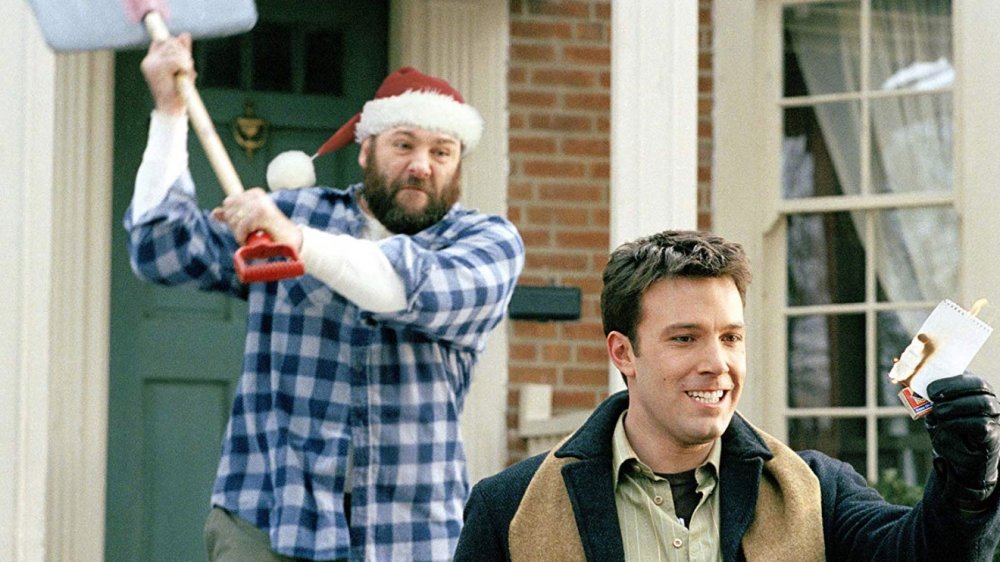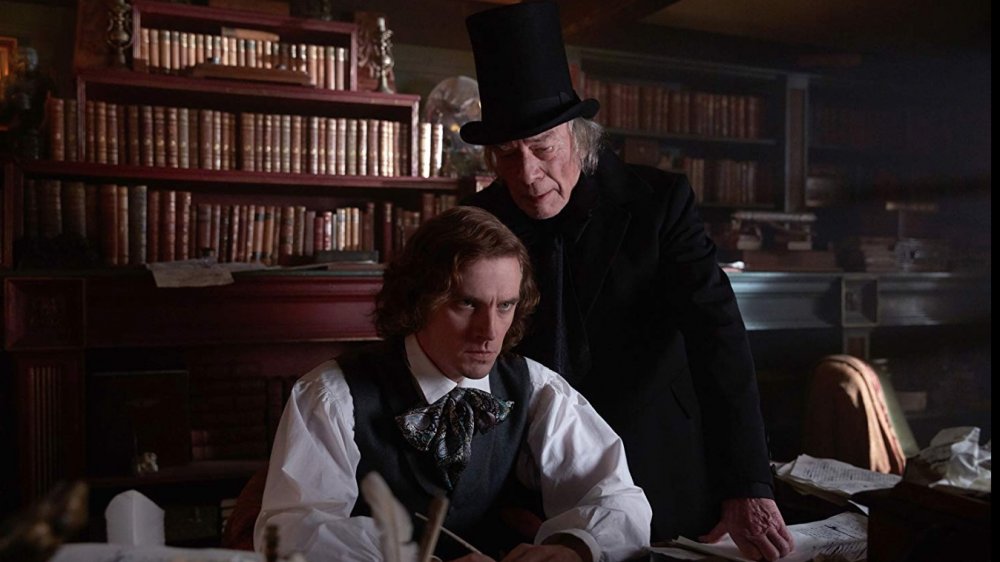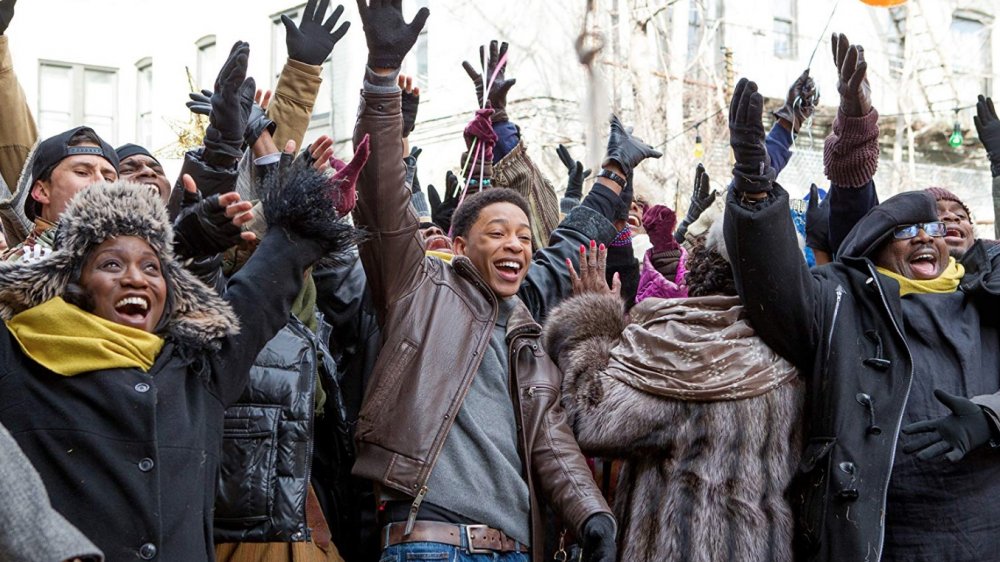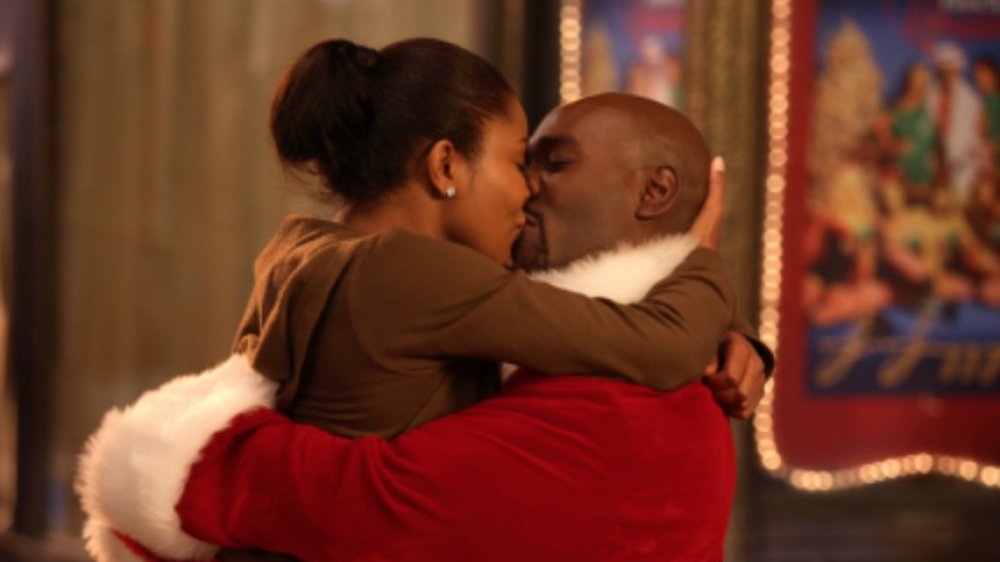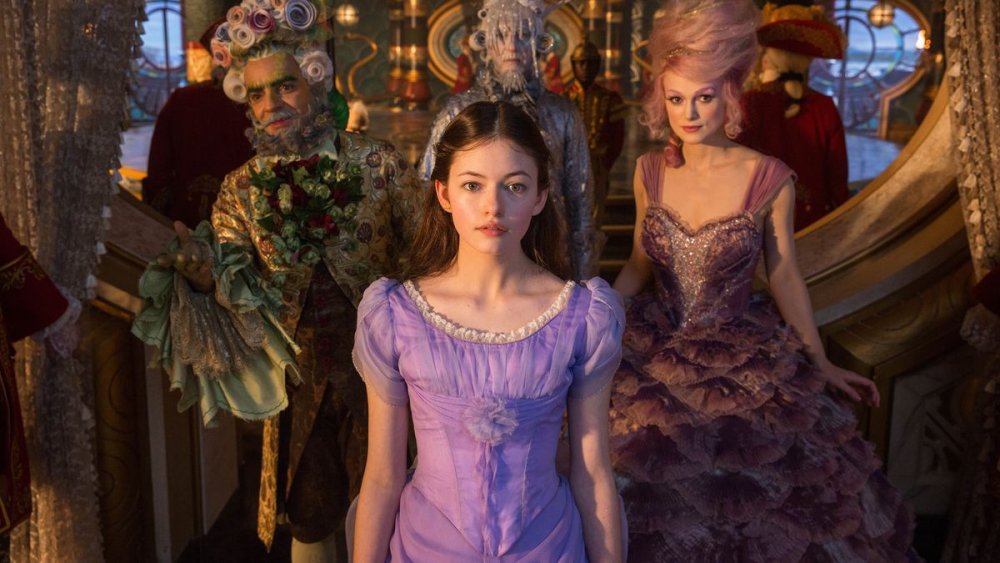The Biggest Holiday Movie Box Office Bombs
There's a reason that both the biggest domestic (Star Wars: The Force Awakens) and biggest international (Avatar) box office grosses are from movies released in December: the holiday movie season is big business for Hollywood. It's also one of the most diverse, with a mix of big-budget tentpoles, arthouse fare, Oscar contenders, and family-friendly flicks.
However, releasing a movie during the holidays isn't a sure thing. With so many films hoping to mine box office gold (or at least break even), it's inevitable some will get a lump of coal instead. Not surprisingly, most of these box office bombs are pretty bad, showing that just because your movie has a holiday theme, doesn't mean audiences will care. We're counting down the biggest holiday movie bombs based on their box office returns. What are these turkeys, and why did they disappoint? Let's find out.
Last Christmas didn't live up to its potential
Emilia Clarke followed up her historic Game of Thrones run with a character that is as different from Daenerys Targaryen as you can get. In Last Christmas, Clarke plays Kate, a store elf at a year-round Christmas shop who habitually makes poor life decisions... but seems to be on the verge of a crossroads when she meets a charming man who seems too good to be true. So basically, it's a cross between Bad Santa and your average Hallmark movie, only this time starring the Mother of Dragons. That said, the film had some heavy hitters involved. Emma Thompson co-wrote and co-starred, and it was directed by Bridesmaids director Paul Feig. There's also the fact the title comes from the perennial holiday favorite tune "Last Christmas" by Wham!
Perhaps Clarke thought Last Christmas would be her Trainwreck, and she was right in a way: the film wound up disappointing the few people who saw it. Critics struck first with, a mediocre 47 percent Tomatometer score, and audiences delivered the killing blow, giving it a subpar $11 million opening weekend. Maybe it'll develop into a cult seasonal classic in years to come, but in theaters, Last Christmas was a bust.
Moviegoers gave 'Jack Frost' the cold shoulder
If Die Hard is considered a Christmas movie then we can all agree that Batman Returns is too, right? Okay, maybe that sounds like a stretch, but it's far from the freakiest Michael Keaton holiday film — that honor goes to Jack Frost.
In this 1998 dud, Keaton plays a man named (wait for it) Jack Frost who can't keep his promises to his son. After he dies in a car wreck, he returns one year later — as a snowman — to make things right. Even the summary sounds off-putting, and that's before you even see the terrifying snowman Keaton's soul possesses. If you mix Ghost and Liar Liar with Frosty the Snowman and coat it with more sugar than a kid's breakfast cereal, you get Jack Frost. The movie isn't just creepy, it's awkward. Sample dialogue — Son: "You da man!" Dad: "No, I da snowman!"
Unsurprisingly, Critics hated Jack Frost, giving it a frigid 19 percent Tomatometer score and saying it was plagued by "sentimental schmaltz and uninspired storytelling." That's just cold. Opening on December 11, 1998, Jack Frost melted away with a measly $7 million opening weekend on its way to a $34 million grand total against a budget of $85 million. No way to sugarcoat this schmaltzy holiday disaster: Jack Frost was a bomb.
'Santa Claus: The Movie' does ho-ho-horribly
Santa Claus has been around for awhile, but it wasn't until 1985 that Hollywood made a film that dared to call itself Santa Claus: The Movie. It wasn't worth the wait.
In Santa Claus: The Movie, Christmas is put in jeopardy when a rogue elf (played by Dudley Moore) joins forces with a greedy toy manufacturer (John Lithgow) to put Santa Claus out of business. This movie was definitely a product of its time, because in the 1980s your villain was either going to be a Soviet of some kind or a greedy capitalist. Despite being timely and featuring Lithgow's customary scene-chewing (or in this case, cigar-chomping), Santa Claus: The Movie didn't strike a chord with critics or moviegoers. It received a brutal 20 percent Tomatometer score and opened on November 27, 1985 with a ho-ho-horrible $5 million. Santa Claus may have been coming to town, but moviegoers didn't show up to see him. Santa Claus: The Movie finished its run with $23 million against a $50 million budget.
The 'Black Christmas' box office was scary bad
Counter-programming is one of the most reliable ways to make your movie stand out at the multiplex, and hopefully make millions of dollars at the box office too. And what could be a better example of counter-programming than releasing a gory slasher flick during the season of comfort and joy? The filmmakers behind Black Christmas tried to do just that, but the result was a bloody mess.
The 2006 version of Black Christmas is a remake of the 1974 slasher flick about an escaped maniac who returns to his childhood home, which is now a sorority house, and starts to murder the sorority sisters one by one. If that sounds like a ripoff of Halloween, remember the original Black Christmas came out four years before John Carpenter's film and is considered a pioneer in the slasher genre. The remake? Not so much. Black Christmas received a brutal 15 percent Tomatometer score and opened to $3.7 million on December 16, 2006, on its way to a $16 million domestic and $21 million worldwide box office take. That's bloody awful.
'Miracle on 34th Street' lacked box office magic
Miracle on 34th Street is a holiday classic with a reputation as one of the best in the entire Christmas movie genre. We're talking about the 1947 original, not the 1994 remake — although that version had a lot going in its favor. It starred Mara Wilson and Richard Attenborough, fresh off two of the biggest hits of 1993, Mrs. Doubtfire and Jurassic Park respectively. Seriously, casting John Hammond as Santa Claus was a stroke of genius. It had all the makings of what should have been a world-class remake, but alas, it was not meant to be. Miracle on 34th Street received a solid 60 percent Tomatometer score, but moviegoers weren't so kind. It opened on November 18, 1994 to only $2.7 million, finishing its run with $17 million domestic and $46 million worldwide.
In hindsight, Miracle on 34th Street's failure might have been a simple case of bad luck: Tim Allen's holiday hit The Santa Claus opened just one week earlier and proved to be the far more popular Kris Kringle movie.
'Everybody's Fine' was anything but fine at the box office
Robert De Niro and Christmas dramedy don't seem to go hand-in-hand, but maybe that was the idea. The actor who became famous for playing violent misanthropes like Travis Bickle and Jake LaMotta took his career in a different direction in the aughts, following the incredible success of the Meet the Parents franchise. America's favorite mobster was turning into America's favorite dad, and Everybody's Fine was a part of that career switch.
In Everybody's Fine, De Niro plays a widower who realizes his only connection to his children was through his wife. Hoping to connect with his adult children during the holidays, he sets out on an impromptu road trip, and hilarity and life lessons ensue. The children are played by Drew Barrymore, Kate Beckinsale and Sam Rockwell, so the film has quality ingredients, but it could never break loose from its Hallmark trimmings. Critics blasted it with a 47 percent Tomatometer score and moviegoers weren't much kinder, as Everybody's Fine was anything but fine at the box office, opening to $3.8 million on its way to a $9 million domestic and $16 million worldwide gross.
Blame Bennifer and bad reviews for the failure of 'Surviving Christmas'
Ben Affleck's career was in a very different place in the early 2000s. Before he took up residency behind the camera as a director, Affleck suffered the Bennifer and Gigli disasters, as well as one of the biggest bombs of Ben Affleck's career: Surviving Christmas.
In Surviving Christmas, Affleck plays a lonely, obnoxious millionaire who pays the family who lives in his childhood home to let him spend Christmas with them, a scenario that sounds more sad than hilarious. Not that it was all Ben's fault. Critics hated the whole thing, leaving with movie with a downright brutal 7 percent Tomatometer score and criticizing it for committing the worst of all holiday comedy sins: it wasn't funny. On top of that, the characters weren't likable and the "message" of the movie was your typical anti-consumerism cliche. So what happens when you have an unpopular lead actor in an unfunny comedy with unlikeable characters? A bomb. The studio knew it too, which is why they sent this Christmas movie out to die on October 22, 2004. Not even Kohl's puts out Christmas stuff that early. Surviving Christmas barely survived its opening weekend, earning $4 million on its way to $11 million domestic and $14 million worldwide.
JTT's movie career was DOA after 'I'll Be Home for Christmas'
If you grew up in the 1990s, you either had a Jonathan Taylor Thomas poster in your locker or you knew somebody who did. Thomas (JTT for all of you OGs) became famous playing the brainy middle child Randy Taylor in the popular ABC sitcom Home Improvement — and he was eventually the second biggest star on the show, after only Tim Allen. Following the incredible success of Allen's holiday hit The Santa Clause, Disney thought putting the young heartthrob in a movie packed with holiday hijinks was a no-brainer. I'll Be Home For Christmas had all the pieces in place to become a smash holiday hit, except for one key ingredient: it wasn't any good.
In the film, Thomas plays a self-centered college student who is left stranded in a California desert a few days before Christmas and must make it back to New York City to spend the holidays with his family... or risk losing the vintage Porsche he was set to inherit. So yeah, something we can all relate to. The setup had potential, but the plot was overcomplicated and worse, not funny. Critics lambasted it with a 23 percent Tomatometer score and it opened to a mere $3 million on November 13, 2008, earning $12 million total against a $30 million budget.
Moviegoers said 'Bah, Humbug' to this Dickens biopic
According to the filmmakers behind The Man Who Invented Christmas, the man who invented the 2,000-year old holiday was the 19th century novelist Charles Dickens, author of A Christmas Carol. Sure, Christmas had been around for generations by that point, but who's counting, right? The Man Who Invented Christmas is a biopic of sorts, chronicling Dickens' development of his most famous story, with sprinklings of real-life events and revisionist imaginings. Dan Stevens plays Dickens, while Christopher Plummer plays Ebenezer Scrooge. It's a fun idea, with a provocative, albeit peculiar title, and had the makings of what should have been a modest hit. The Man Who Invented Christmas had critical support too, with a 79 percent Tomatometer score. Critics may have enjoyed it, but when it came to buying tickets, moviegoers were stingier than Scrooge: The movie opened to a downright disastrous $1.3 million on its way to $5 million domestic and $8 million worldwide.
'Nothing Like the Holidays' was like every other holiday movie ever
With so many cliche holiday movies coming out every year, they all start to run together. Take for instance, Nothing Like the Holidays. We don't even remember this — and you probably don't either, as the movie faded into oblivion immediately after it opened. This 2008 dramedy tells the story of the Rodriguez clan, a Puerto Rican family in west Chicago who face what may be their last Christmas together. With John Leguizamo, Freddy Rodriguez, Debra Messing, and Alfred Molina, Nothing Like the Holidays has a pretty impressive cast, but that wasn't enough to save it. Its biggest issue was its blandness — frankly, you could watch 1,001 movies just like it on TV for free. Critics gave it a mediocre 53 percent Tomatometer score, and it opened on December 12, 2008 to a mere $3.5 million. Its final worldwide take was a disappointing $7.5 million, with only $15,754 of that coming from overseas. Its cast may have added some overdue representation to the Christmas movie canon, but in terms of story, Nothing Like the Holidays had nothing original to offer.
'Black Nativity' doesn't come close to its source material
Black Nativity billed itself as "the musical event of the holiday season," which leads us to believe there were no other musical events of the holiday season in 2013. Which is a shame, because the film had a lot going for it. A contemporary musical adaptation of Langston Hughes' play, Black Nativity is about a streetwise Baltimore teen who travels to New York City to spend Christmas with his estranged relatives. With a cast that included Forest Whitaker, Angela Bassett, and Jennifer Hudson, plus Hughes' celebrated source material, Black Nativity had a lot going for it... except for quality, unfortunately. Despite all of its parts, the sum total was simply not very good. Critics condemned it as "heavy-handed" and gave it a 51 percent Tomatometer score. Black Nativity opened to $3.6 million on November 27, 2013 and went on to earn $7.4 million worldwide, with just $435,996 of that coming from overseas. Despite its modest $17.5 budget, Black Nativity was a bust.
'The Perfect Holiday' was the perfect bomb at the box office
The Perfect Holiday may win the award for "Most Generic Holiday Movie Title Ever." Too bad, because it united a stacked cast of likable leads, including Morris Chestnut, Terrence Howard, Queen Latifah and Gabrielle Union.
The Perfect Holiday is about a young girl who asks a department store Santa (played by Chestnut) to find a husband for her long-suffering single mother (Union). Thankfully for all parties involved, the department store Santa is a dreamy singer-songwriter who would make the perfect husband for her mom and father for her. If this all sounds a little too, well, "perfect" (e.g. trite, treacly, and cliché), that's the problem. Critics couldn't stomach how saccharine it was and bestowed it with a terrible 17 percent Tomatometer score, and the movie opened to just $2.2 million on December 12, 2007 on its way to a less-than-perfect (actually a downright terrible) $5.8 million total.
Kirk Cameron couldn't save this Christmas box office disaster
First off, Kirk Cameron's Saving Christmas is not to be confused with Ernest Saves Christmas, although if Christmas were truly in danger we'd much rather have Ernest P. Worrell on the job than Kirk Cameron — especially after the disastrous box office performance of Cameron's 2014 Yuletide fiasco.
In Kirk Cameron's Saving Christmas, Kirk Cameron (playing himself) seeks to save his annual Christmas party from his cynical brother-in-law by teaching him (and viewers) the true meaning of Christmas. Critics must have not received the message: The film received a 0 percent Tomatometer score. The film was so poorly received it couldn't find an audience, not even among Cameron's evangelical fanbase, and opened to $992,087 on November 14, 2014 on its way to grossing $2.7 million worldwide. No matter one's spiritual or religious beliefs, we can all agree Kirk Cameron's Saving Christmas is absolutely horrible.
'The Nutcracker' isn't all its cracked up to be
Hollywood's addiction to remaking, rebooting, and franchising easily recognizable properties makes sense — they have a built-in audience. However, some have failed so often and so badly you wonder why Hollywood continues to bother. Take for instance The Nutcracker. Tchaikovsky's beloved 1882 ballet is a perennial holiday classic onstage, but while audiences love to watch dancing rats and sugar plum fairies in live performance, The Nutcracker has been a consistent and colossal failure at the multiplex.
In 1986, Maurice Sendak of Where The Wild Things Are designed the costumes for Nutcracker: The Motion Picture, based on the Pacific Northwest Ballet's original production. That film earned $751,727. In 1990, Hollywood tried animating the story as The Nutcracker Prince, which earned $1.7 million total. Hollywood's next attempt starred Macaulay Culkin, fresh off two of the biggest holiday hits ever, Home Alone and Home Alone 2. The Nutcracker (1993) earned $2.1 million on a $19 million budget. The Nutcracker in 3D (2010) figured that post-Avatar, 3D was worth a $90 million investment. It wasn't. That film earned $16 million worldwide. You'd think a bomb of that scale would scare filmmakers from ever trying The Nutcracker again, but you'd be wrong — even Disney failed to make magic (and money) with the story. The Nutcracker and The Four Realms made $54 million domestically and $173 million worldwide on a $120 million budget. Better than the rest, but still a bomb. Note to filmmakers: making another Nutcracker movie is just nuts.







